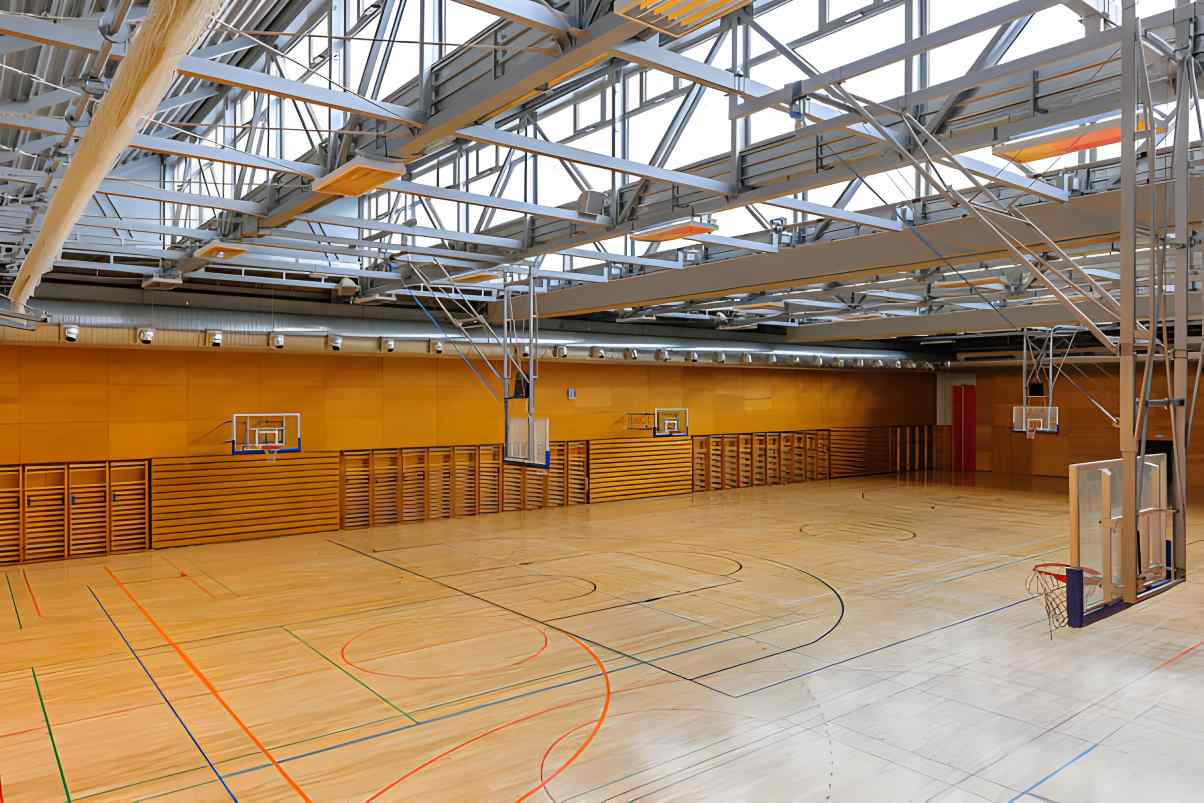Athletes are often perceived as strong, resilient individuals who excel under pressure and overcome challenges with ease. However, behind the scenes, many athletes struggle with mental health issues such as anxiety, depression, and substance abuse.
The competitive nature of sports, combined with intense training regimens and performance expectations, can take a toll on athletes’ mental well-being. To address these challenges and break the stigma surrounding mental health in sports, the integration of rehab centres focusing on mental health support is essential.
This article explores the importance of promoting mental health in sports through rehab centres and the impact it can have on athletes’ overall well-being.
The Mental Health Crisis in Sports
Athletes face unique stressors and pressures that can contribute to mental health issues. The relentless pursuit of perfection, fear of failure, injuries, performance anxiety, and the scrutiny of fans and media can all negatively impact athletes’ mental health.
Despite these challenges, seeking help for mental health issues in the world of sports has historically been stigmatized, with athletes often feeling pressure to conceal their struggles for fear of being perceived as weak or incapable.
However, the tide is slowly turning as awareness of mental health in sports grows. High-profile athletes sharing their struggles with mental health, such as Simone Biles in gymnastics or Kevin Love in basketball, have helped to break down barriers and encourage others to seek support.
Yet, there remains a significant need for accessible and specialized mental health resources tailored to the unique needs of athletes.

The Role of Rehab Centres in Promoting Mental Health
Compare.Rehab specializing in mental health offers a holistic approach to addressing the psychological well-being of athletes. These centres provide a safe and supportive environment where athletes can receive personalized treatment and support from mental health professionals who understand the unique challenges they face.
1. Comprehensive Assessment and Treatment
- Rehab centres conduct comprehensive assessments to identify underlying mental health issues, substance abuse disorders, or co-occurring conditions.
- Tailored treatment plans are developed to address the specific needs of each athlete, incorporating evidence-based therapies such as cognitive-behavioural therapy (CBT), mindfulness-based techniques, and medication management when necessary.
2. Supportive Environment:
- Rehab centres create a supportive and non-judgmental environment where athletes can openly discuss their struggles without fear of stigma or reprisal.
- Group therapy sessions allow athletes to connect with peers who understand their experiences, providing a sense of camaraderie and solidarity.
3. Education and Coping Strategies:
- Rehab centres provide education on mental health conditions, coping strategies, stress management techniques, and mindfulness practices to help athletes develop resilience and emotional regulation skills.
- Athletes learn to recognize warning signs of mental health issues and develop healthy coping mechanisms to manage stressors effectively.
4. Dual Diagnosis Treatment:
- Many athletes struggle with both mental health issues and substance abuse disorders, often using drugs or alcohol as a way to cope with psychological distress.
- Rehab centres offer integrated treatment for dual diagnosis, addressing both the underlying mental health issues and substance abuse in a coordinated manner.
5. Transition and Aftercare Planning:
- As athletes progress through treatment, rehab centres assist with transition planning to ensure a smooth return to their sport or transition to life beyond athletics.
- Aftercare support services, such as ongoing therapy, support groups, and wellness programs, help athletes maintain their mental health and prevent relapse.

Breaking the Stigma and Promoting Mental Health Awareness
The integration of mental health support within sports culture is crucial for breaking the stigma surrounding mental health and promoting a culture of openness and support. Rehab centres play a vital role in this process by providing athletes with the resources, tools, and support they need to prioritize their mental well-being.
1. Normalizing Help-Seeking Behaviour:
- By promoting mental health awareness and normalizing help-seeking behaviour, rehab centres empower athletes to prioritize their mental well-being and seek support when needed.
- Athletes who receive treatment for mental health issues serve as role models for others, demonstrating that seeking help is a sign of strength, not weakness.
2. Providing Resources and Education:
- Rehab centres offer educational workshops, seminars, and outreach programs to raise awareness of mental health issues and reduce stigma within the sports community.
- By providing resources and education to coaches, trainers, and athletic staff, rehab centres foster a supportive environment where mental health is valued and prioritized.
3. Advocating for Policy Changes:
- Rehab centres advocate for policy changes within sports organizations to prioritize mental health and provide athletes with access to comprehensive mental health support services.
- By collaborating with governing bodies, leagues, and athletic associations, rehab centres can influence systemic changes that promote athlete well-being.
The Multi-Faceted Approach of Mental Health Rehab Centres in Sports
It encompasses tailored support for athlete-specific challenges, integration of holistic wellness practices, fostering peer support, collaborating with sports organizations, and raising awareness through athlete advocacy, collectively aiming to break the stigma surrounding mental health and provide comprehensive care for athletes’ well-being.
1. Tailoring Support for Athlete-Specific Challenges
- Rehab centres specializing in mental health for athletes understand the unique challenges and pressures faced by those in the sports industry.
- These facilities are equipped to address athlete-specific issues such as performance anxiety, identity transition post-retirement, and the psychological impact of injuries.
- Therapists and counsellors in these centres are trained to work with athletes, understanding the demands of their sport, the pressures of competition, and the importance of maintaining mental resilience in high-stress environments.
2. Integrating Holistic Wellness Approaches
- Mental health rehab centres often integrate holistic wellness approaches alongside traditional therapy methods. These may include yoga, meditation, art therapy, and nutrition counselling.
- By addressing the mind-body connection and promoting overall well-being, these centres offer athletes a comprehensive approach to mental health that encompasses physical, emotional, and spiritual dimensions.
3. Fostering Peer Support and Mentorship
- Peer support and mentorship programs within rehab centres provide athletes with the opportunity to connect with others who have faced similar challenges.
- Sharing experiences, challenges, and successes with peers and mentors can be incredibly empowering for athletes, fostering a sense of community and mutual support that enhances the healing process.
4. Collaborating with Sports Organizations and Teams
- Rehab centres work closely with sports organizations, teams, and athletes’ support networks to ensure coordinated care and seamless integration of mental health support services.
- By collaborating with coaches, trainers, team physicians, and other stakeholders, these centres can identify athletes in need of support early on and provide timely intervention and treatment.
5. Raising Awareness Through Athlete Advocacy
- Athletes who have received support from mental health rehab centres often become advocates for mental health awareness within the sports community.
- Through speaking engagements, public appearances, and social media advocacy, these athletes share their stories, break down barriers, and encourage others to prioritize their mental well-being.

Conclusion
Promoting mental health in sports through the integration of rehab centres is essential for breaking the stigma surrounding mental health and supporting the well-being of athletes.
By providing comprehensive assessment and treatment, creating a supportive environment, offering education and coping strategies, addressing dual diagnosis, and facilitating transition and aftercare planning, rehab centres play a vital role in supporting athletes’ mental health needs.
Through increased awareness, advocacy, and policy changes, the sports community can foster a culture of openness, support, and resilience, ensuring that athletes receive the care and support they need to thrive both on and off the field.



